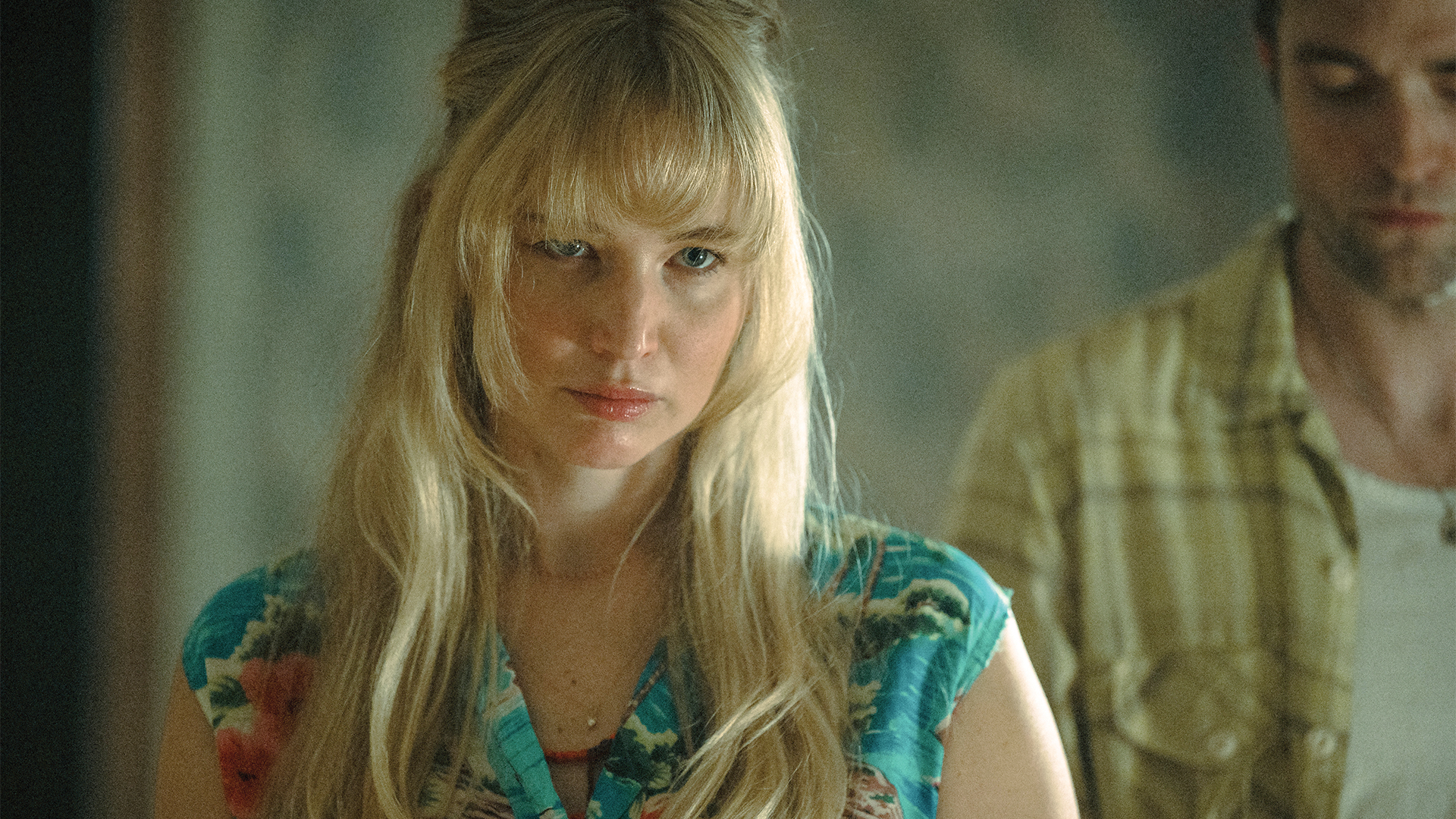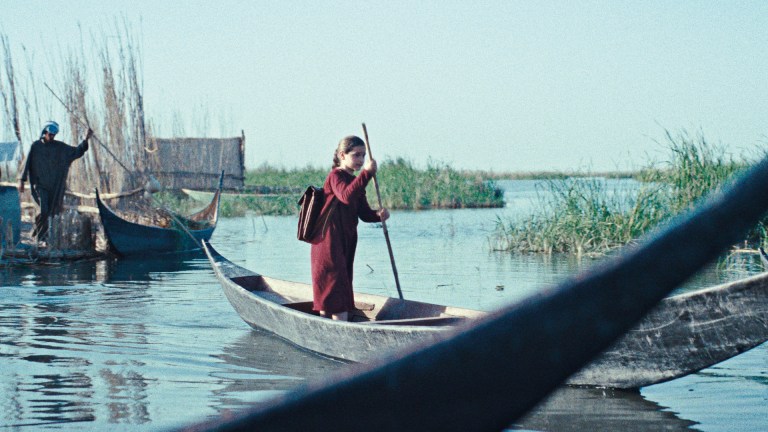Perhaps you’ve already heard about Jennifer Lawrence’s high-wire performance in Die, My Love, either from admiring film festival reviews or her recent boisterous appearance on Graham Norton. She plays Grace, a socially isolated new mother in rural Montana whose sturdy denim dungarees belie the fact that she is coming apart at the seams.
Grace stalks through her garden’s tall grass on all fours like a panther, which might feel like a playtime goof if she wasn’t also holding a large kitchen knife. We see her standing in the middle of her kitchen before she alarmingly flops her head and arms down like a puppet who has had their strings cut. She parks her butt inside her old-fashioned fridge, casually spitting out an arc of beer onto the floor (that we never saw her take a swig makes it all the more disquieting).
Get the latest news and insight into how the Big Issue magazine is made by signing up for the Inside Big Issue newsletter
Some of this behaviour you could argue away as just the sort of things people do when they have been left alone too long. Who hasn’t idly imagined wedging themselves into a fridge on a swelteringly hot day? But the cumulative effect of these eccentric, dissociative behaviours – often edited in woozy montages where it is impossible to keep track of time – creates a palpable sense of dread, particularly with a baby involved. If this is the baseline of freaking out, where will Grace end up?
It all begins rather more optimistically. We first meet Grace and her partner Jackson (Robert Pattinson) as a couple making a fresh start. The death of Jackson’s uncle means they can take over his creaky Montana house. They are both creative people – she’s a writer, he’s some sort of musician – and most artists would kill for a bucolic retreat free from modern distractions where the muse can descend. The pair are clearly in love, and lust, giving the impression that they will enthusiastically christen every room in their run-down new home.
Grace is visibly pregnant, although as she and Jackson cheerfully thrash around to punk rock in their kitchen the message seems to be: becoming a mother isn’t going to stop me having fun. But after their son is born – rarely called anything other than “the boy” – things start to unravel.









